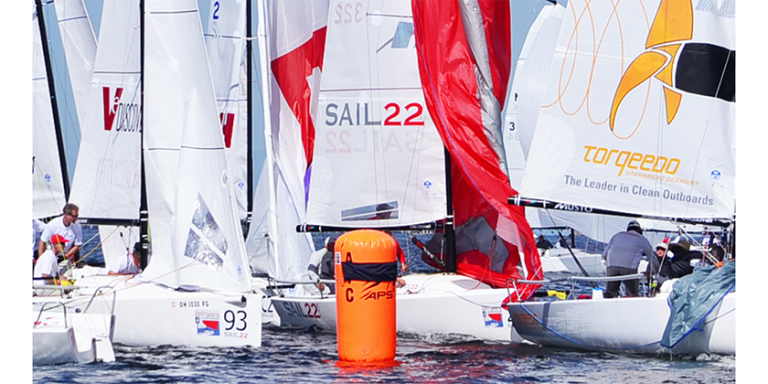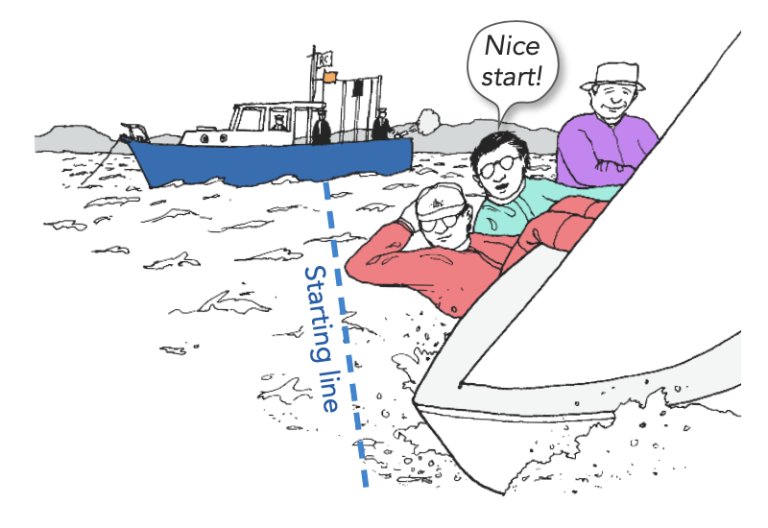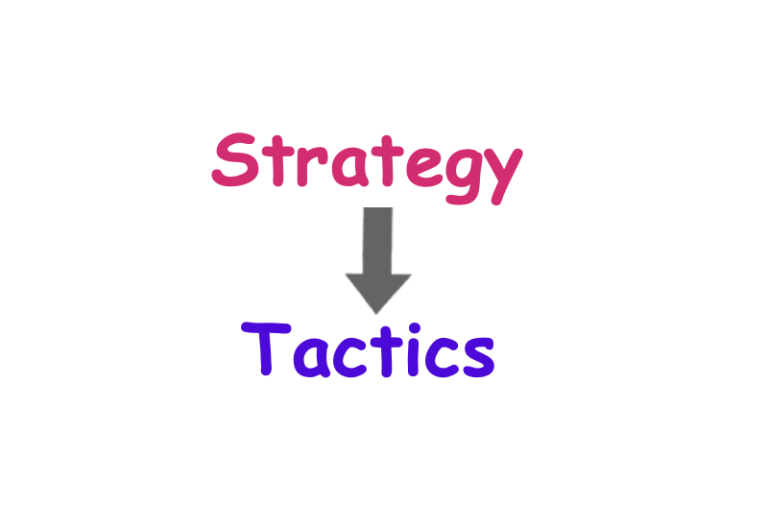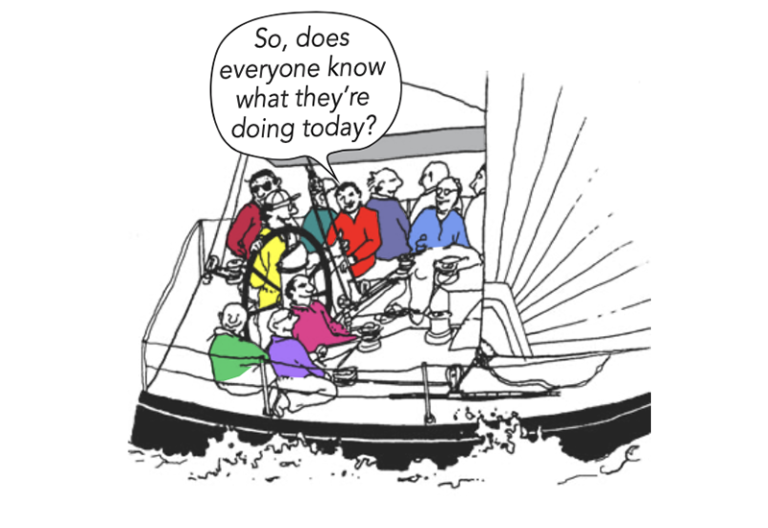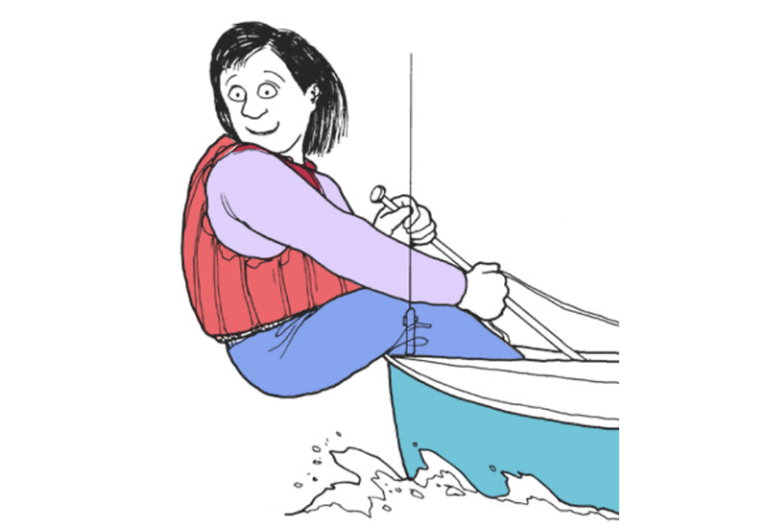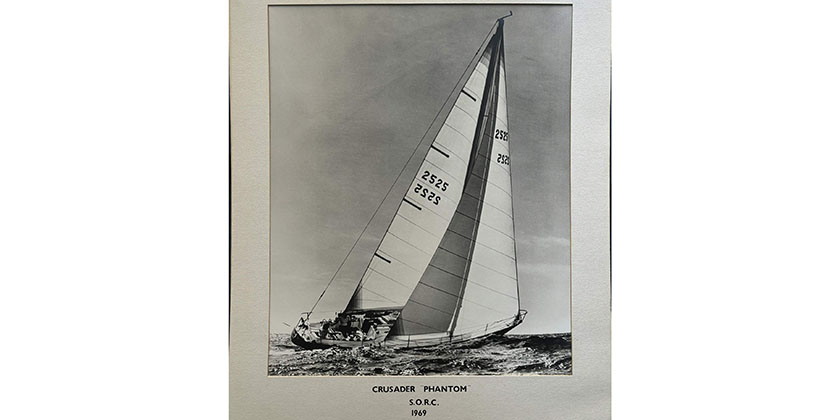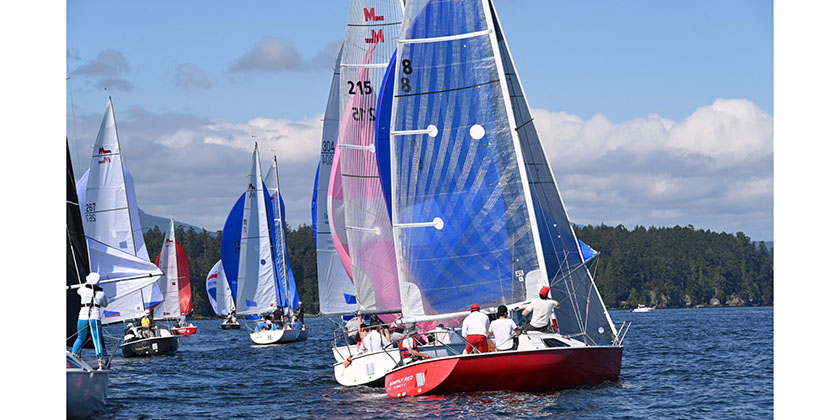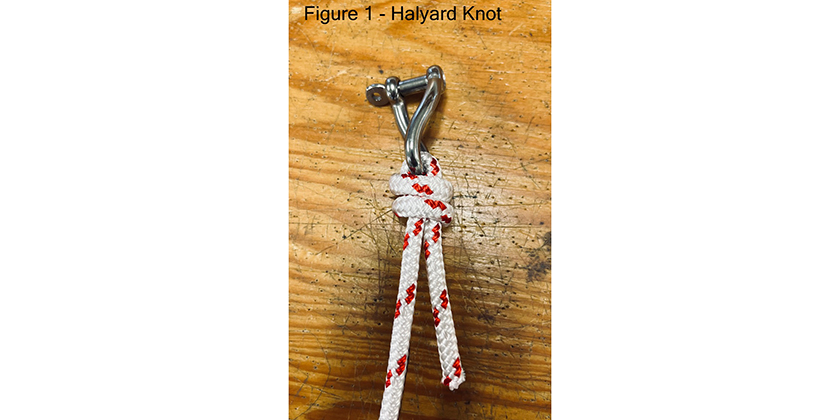Speed & Smarts: A Closer Look at the Defining Qualities of Sportsmanship

Dec 24, 2021
Any sailor who shares his expertise with other members of his club, fleet or class is a ‘good sport.’
By Dave Dellenbaugh
Why is good sportsmanship important in sailing? Because no matter how hard we compete, most of us still want to have fun. And almost all of us feel it’s critical to have a fair playing field. If we want to attract more racers to the sport and continue getting good race management, sportsmanship is the only way to go. On top of all that, it makes us feel good.
Sportsmanship is a theme that runs through all competitive events, but what’s considered ‘good’ or ‘bad’ sportsmanship is different with every sport. That’s because the notion of what’s ‘fair’ is based on traditions and recognized principles. Many actions that are acceptable on the football field, for example, would be completely unacceptable on a golf course.
As you can see from the following definitions and comments, however, sailors share a lot with other athletes when it comes to good sportsmanship.
Good sportsmanship is:
- Fair play, respect for opponents, and polite behavior by someone who is competing in a sport.
- Conduct becoming to anyone who is participating in a sport; e.g. fairness, respect for your opponent, graciousness in winning or losing.
- Ethical, appropriate, polite and fair behavior while participating in a game or athletic event.
- The quality of showing fairness, respect, and generosity toward the opposing team or player and for the sport itself when competing.
Synonyms for ‘Sportsmanship’
Fairness, honesty, sincerity, virtue, forthrightness, goodness, honour, principle, righteousness
From various online dictionaries and thesauruses
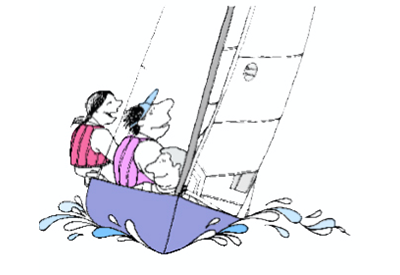 A set of sportsmanship guidelines:
A set of sportsmanship guidelines:
- Apply the golden rule: Do unto others as you would have them do unto you.
- Understand and appreciate the rules. Enjoy yourself and encourage enjoyment of others.
- Take responsibility for your actions.
- Exhibit respect for the officials.
- Do not tolerate bad behavior from your teammates.
- Cheer in a positive manner.
- Accept all decisions by officials without question.
- Applaud good plays by teammates and competitors. Applaud at the end of the contest for the performance of all participants.
- Encourage all surrounding people (fans included) to
- display sportsmanlike behavior.
- Win with class, lose with dignity.
From the Hawaii Amateur Softball Association
Play Fair!
Go for the gun, or be a good sport? Fortunately, you don’t have to make that choice. While the pressure to win occasionally leads to poor sportsmanship, there are many champion sailors who stand out as examples of good sportsmanship. For them, playing fair is a prerequisite for success in the sport and for the re- wards that come from competing with respect and integrity.
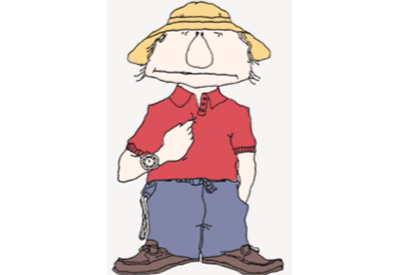 Good sportsmanship starts from within each sailor’s own mind and heart. It is not usually something that can be legislated, though in sailing there are certain rules that describe what is expected of sailors.
Good sportsmanship starts from within each sailor’s own mind and heart. It is not usually something that can be legislated, though in sailing there are certain rules that describe what is expected of sailors.
Don’t be a sore loser or a bad winner!
Sportsmanship is an ethos that a sport will be enjoyed for its own sake, with proper consideration for fair- ness, ethics, respect and a sense of fellowship with one’s competitors.
A poor sport is a person who doesn’t take defeat well, while a good sport is someone who is a ‘good winner’ as well as a ‘good loser.’
Sportsmanship refers to virtues such as fairness, self-control, courage and persistence and includes the concept of treating others fairly, maintaining self-control while dealing with others, and respect for both authority and opponents.
A sore loser is a competitor who exhibits poor sportsmanship after losing a game or contest. His or her behavior might include:
- blaming others for the loss,
- not accepting responsibility for personal actions that contributed to a defeat,
- an immature or improper reaction to the loss,
- making excuses for the defeat,
- not giving their opponent(s) credit for the win,
- citing unfavorable conditions, poor officiating or other petty issues as reasons for the defeat.
A bad winner is a competitor who shows poor sportsmanship after winning. This person acts in a shallow fashion after his or her victory; his or her behavior might include:
- gloating about the victory,
- rubbing the win in the face of the opponent,
- failing to show respect for the opponent,
- trying to lower the opponent’s self-esteem by
- reminding the opponent of poor performance (even if the opponent competed well).
Paraphrased from the online entry for ‘Sportsmanship’ at Wikipedia.
Share your knowledge. Almost every sailor wants to learn more about the sport, so if you can help your competitors understand how to sail their boats faster and smarter, they’ll find the sport more rewarding and you will both ‘win’!
You don’t have to be a rock star in order to help other people become better sailors. No matter what your skill level, there is always something you can share with other sailors. In fact, you may be more effective at this if you’re not the class champion because you’ll be less intimidating.
Next time: Penalties and Turns
 David Dellenbaugh is the publisher, editor and author of Speed & Smarts, the racing newsletter. He was the tactician and starting helmsman on America3 during her successful defense of the America’s Cup in 1992 and sailed in three other America’s Cup campaigns from 1986 to 2007. David is also two-time winner of the Canada’s Cup, a Lightning world champion, two-time Congressional Cup winner, seven-time Thistle national champion, three-time Prince of Wales U.S. match racing champion and past winner of the U.S. Team Racing Championship for the Hinman Trophy. He is currently a member of the US Sailing Racing Rules Committee (and was its chairman from 2005-2008).
David Dellenbaugh is the publisher, editor and author of Speed & Smarts, the racing newsletter. He was the tactician and starting helmsman on America3 during her successful defense of the America’s Cup in 1992 and sailed in three other America’s Cup campaigns from 1986 to 2007. David is also two-time winner of the Canada’s Cup, a Lightning world champion, two-time Congressional Cup winner, seven-time Thistle national champion, three-time Prince of Wales U.S. match racing champion and past winner of the U.S. Team Racing Championship for the Hinman Trophy. He is currently a member of the US Sailing Racing Rules Committee (and was its chairman from 2005-2008).
 You can subscribe to the Speed & Smarts newsletter HERE
You can subscribe to the Speed & Smarts newsletter HERE

